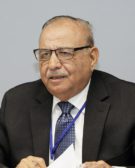
Relations between Iraq and Turkey have been cordial and cautious since Iraq became independent of Ottoman suzerainty after WWI, when British forces invaded and occupied the country. In 1921 the Kingdom of Iraq was mandated to the United Kingdom before it gained independence in November 1932 and granted full membership in the League of Nations as a fully sovereign country.
A “Mosul Question” immediately arose between Turkey and the United Kingdom concerning control over the old Ottoman Mosul Governorate. But a League of Nations investigative commission decided in 1926 that the province would go to the new Iraqi state, which pledged to pay a 10 percent royalty on oil revenues to Turkey for the next 25 years. As a political compromise, the agreement established for open-border relations and a steady stream of revenue for the new state under King Faisal, who had assisted British forces in conquering the area during the Great War.
Indeed, cooperation on Mosul marked bilateral relations between Iraq and Turkey until the Kuwait affair in 1990, the subsequent Gulf War to end Iraq’s occupation of the emirate in 1991, and the establishment of self-rule by three Kurdish governorates in northern Iraq—Dohuk, Erbil, and Sulaymaniyah. Importantly, this came after the establishment of “no-fly” zones over northern and southern Iraq which, in effect, created a self-governing entity in the north with American assistance. The Turkish government then opted to deal directly with the prevailing conditions in the northern part of Iraq, which in fact comprises the Mosul vilayet (Ottoman era administrative province) minus the modern Mosul and Kirkuk governorates.
The nature and configurations of the borders of Iraq and Turkey have dictated certain characteristics of relations between the two states. First, the presence of a Kurdish population on both sides of the border, though hailing from different Kurdish communities, necessitated cooperation between them, with the aim of finding a suitable solution that brings peace and stability. Second, while Turkey continued to refuse to see the Kurds as a separate ethnic community, Iraq decided to grant its Kurdish population autonomy over civil and cultural domains, ending a long history of seeking to defeat them in successive military campaigns. In 1992, the three governorates became known, constitutionally, as the Kurdistan Regional Government (KRG).
This was the best thing the Kurds could hope for. In the 1970s, they had been encouraged by the Shah of Iran to revolt against the central government in Baghdad. But their insurgency failed after then-President Saddam Hussein reached a deal with the Shah that in reality resulted in a defeat for the Kurds. During the Iraq-Iran war (1980-88), it was the turn of Ayatollah Khomeini to encourage at least one faction of the Kurds to start an insurgency; again, this also was cut short after the military victory of Iraq over Iran in 1988. During all those years, the cooperation between Iraq and Turkey continued.
However, the Kurds were encouraged once again, this time by the Americans, to revolt against Baghdad, and again they lost the battle and the insurgency was suppressed. The Iraqi government invited the Kurdish leaders to come to Baghdad to negotiate. Just before a deal was finalized, the Kurdish leadership chose to end the negotiations and did not return to Baghdad. American pressure on Saddam Hussein’s government made him pull out of the three governorates, leaving the Kurdish areas in semi-independent rule. The Iraqi government and the Kurdish autonomous areas agreed to the establishment of a 3-6-mile (5-10 kilometers) demilitarized zone between Iraqi and Kurdish forces, in effect lifting central government control over the area.
Third, for its part, the Turkish government dealt with its own Kurdish problem in a different fashion. It sought military and intelligence alternatives to end the insurgency of the Kurdistan Workers’ Party (PKK) and arrest its leader, Abdullah Ocalan. Simultaneously, and in reaction to close Iranian relations with the Talabani segment of the Kurdish region and the presence of PKK fighters on the Iraqi Qandeel mountains bordering Iran, Turkey established a permanent military presence in the Dohuk and Erbil governorates before the 2003 invasion of Iraq. After the invasion, the Turks established a military presence—with the consent of the Iraqi government—to train Iraqi forces. To be sure, Turkish interests and security implications have a strong influence in the region to challenge and restrain any presence of the PKK in Sinjar (a mountainous chain 40-50 miles south of the Turkish border) and to prevent the Shiite Popular Mobilization Units (PMU) from persecuting the Sunni Turcoman population in the city of Tal Afar in northwestern Iraq. Indeed, Iran was not far from motivating the Shiite militias, including the PMU, and pushing them to challenge the Turkish presence in Baashiqa north of Mosul, presenting it as an occupation that should be confronted and ended.
The Turkish presence in Baashiqa was not perceived as a provocation by the international alliance led by the United States; on the contrary, it was understood as part of the preparations to liberate Mosul. The Kurdish stance was similar. The Turks themselves said that they would depart once Mosul was liberated, and the PMU committed no crimes against the Sunni population of Mosul—neither Arab nor Turcoman.
Geopolitically, the Kurdistan Regional Government is very important not only to Turks and Iraqis but also to the Iranians and the Gulf Cooperation Council (GCC) countries. In fact, a declaration of independence by the Kurds would in all reality cut Iraq off from Turkey.
As a consequence of such a political context, Iraqi–Turkish bilateral relations have been strained and the high echelons of both governments have had hostile exchanges, with Iraqi politicians threatening Turkish forces in Baashiqa. It is in this atmosphere that the visit of Binali Yildirim, the Turkish prime minister, took place on January 7-8, 2017. Many were doubtful that the visit would result in a settlement to the crisis, one that would satisfy the national interests of both countries.
Prime Minister Yildirim was received cordially by Iraqi Prime Minister Haider al-Abadi in Baghdad. At the end of the visit a joint statement was announced, reiterating some of the basic foundations of Iraqi-Turkish relations.
Yildirim met not only the central government officials in Iraq, but also visited Erbil in the Kurdish region to meet with Masoud Barzani, the president of Iraqi Kurdistan. The meeting was perceived as a sign of Turkey’s support for Barzani in his internal differences with the Sulaymaniyah group, which is backed by Iran and the PKK. The meeting of the Turkish prime minister with the leaders of Iraqi Turcomans was also indicative of this support.
The statement resulting from the Turkish prime minister’s visit also points to certain milestones in Turkey-Iraq relations. First, it may be the first time since the ascendance of Shiite parties to lead the Iraqi government that the country publicly recognized good historical, religious, cultural, and neighborly relations with Turkey. (In fact, this discourse is on a collision course with that of the Shiite militias influencing political power in Iraq at present.)
Second, there was mention of the “Higher Council of Strategic Cooperation,” the most important body of cooperation between both countries. This provides Turkey good standing in Iraq. Third, the parties discussed cooperation possibilities and vital subjects of interest, and addressed the capability to build and develop the strategic and political relations that will ensure the interests of both countries. Fourth, the nine articles of the joint statement dealt with the demands of the Iraqi government for the total pullout of Turkish troops from the Baashiqa camp near Mosul. The Turkish side acknowledged it as an Iraqi camp, but offered no specific commitment to a pullout. Fifth, both parties agreed to cooperate on Tigris and Euphrates management and other mutual water projects. Sixth, and importantly, The parties restated their commitment to fight terrorism, ISIS, and “the rest,” which means the PKK and perhaps the Shiite militias (from Turkey’s point of view).
It is clear that Iran and its adherents in Iraq will continue to undermine Iraqi–Turkish relations as part of the longstanding Iranian project in Iraq and the Levant. The weakening of Turkey as a major strategic power in the region will pave the way for Iran to consolidate its gains in Iraq and the Levant.
In conclusion, the Iraqis succeeded in making the Turks affirm their commitment to the stability and integrity of Iraq. The Turks, on the other hand, succeeded in presenting themselves as the quasi-protectors of the Iraqi Turcoman community, affirming their friendship with Erbil, branding the PKK as a terrorist group, and maintaining their stand not to pull out from Baashiqa until the liberation of Mosul.

